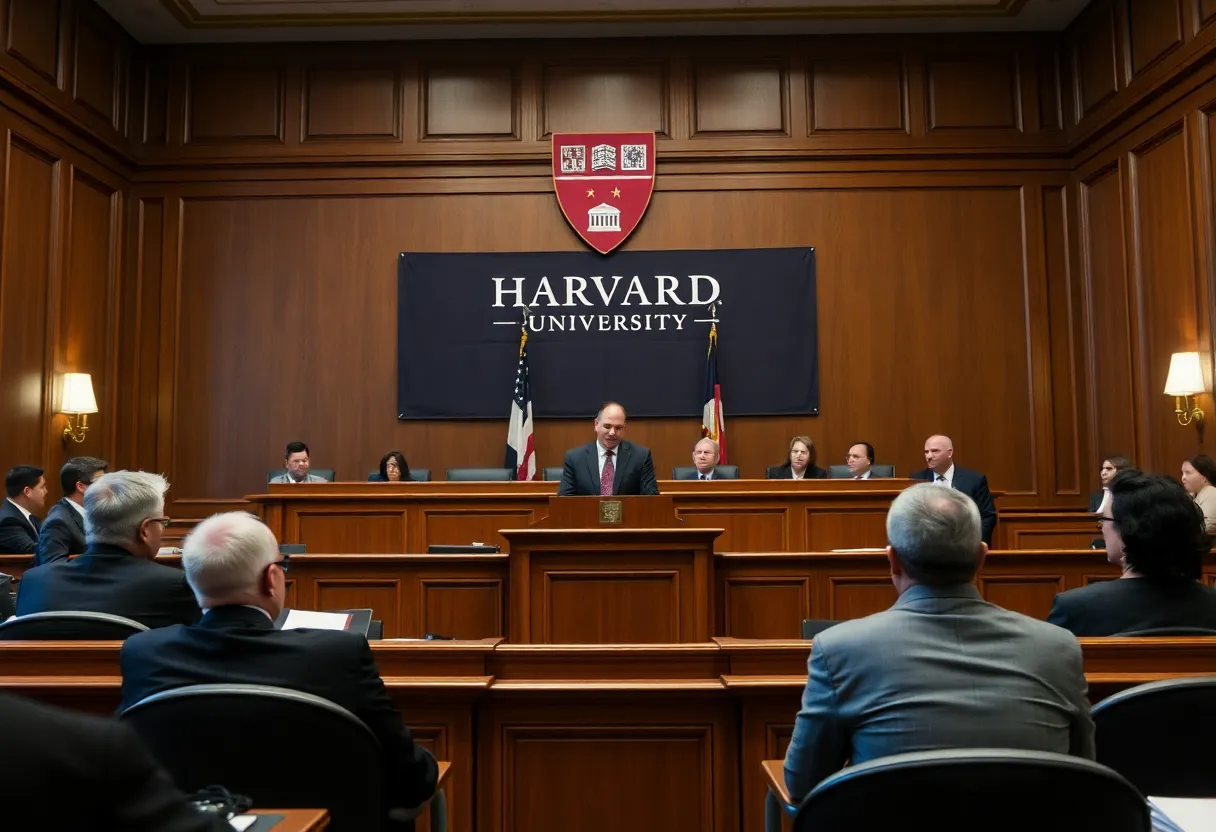News Summary
Harvard University has filed a lawsuit against the Trump administration over significant cuts to its federal funding, amounting to $2.6 billion. The university argues that these cuts are politically motivated and infringe upon academic freedom, urging that funding should not be contingent on compliance with government policies. This high-stakes legal battle will not only affect Harvard but also set a precedent for other universities facing similar challenges. As the court deliberates the case, the implications for funding and autonomy in higher education loom large.
Harvard Takes Legal Stand Against Funding Cuts
On Monday, Harvard University stepped into the spotlight as it faced off against the Trump administration in federal court. The stakes? A whopping $2.6 billion in federal funding that the government decided to cut, claiming it was necessary for various reasons. But Harvard isn’t backing down, arguing that this decision is not just about money—it’s about academic freedom and the rights of educational institutions.
The Legal Battle Begins
In the courtroom, U.S. District Judge Allison Burroughs presided over the proceedings. Harvard’s attorneys argued passionately against the funding cuts, claiming they were not only politically motivated but also an attempt to coerce the university into adopting federal policies related to student conduct, admissions, antisemitism, and diversity. This isn’t just a case about funding; it’s a battle for autonomy in academia.
Looking Beyond Harvard
This case is being closely watched by other universities that have faced similar funding challenges. Harvard is the first university to go after the administration in court over these cuts, but it’s clear that many others are feeling the pressure as well. The Trump administration has been reported to threaten billions of dollars in grants and contracts across various educational institutions. This creates a worrying precedent for how universities are treated if they do not align with government policies.
The Stakes Are High
If Harvard wins, it could pave the way to restore not just the funding but hundreds of scientific and medical research projects that are now in jeopardy. This is an especially critical issue considering that a lot of this research impacts not only the university community but society at large.
Balancing Act Between Autonomy and Accountability
Harvard’s lawsuit claims that the government is attempting to exert undue control over its academic decisions. The situation has been fueled by the Trump administration’s threats, including a recent effort to negotiate with Columbia University regarding a $400 million funding reinstatement, conditional on adopting specific ideological measures. It raises the question: Should the government dictate how schools operate?
The Fight for Academic Freedom
During the hearing, Judge Burroughs did express doubt regarding the government’s rationale and evidence behind the funding cuts. Conversely, government representatives stated that they believe they have the authority to withhold funding if a school does not comply with presidential directives, especially regarding concerns about antisemitism.
What’s at Risk?
Harvard President Alan Garber has emphasized that no government should dictate how private universities choose their faculty or set their academic policies. Since Harvard rejected demands from a federal antisemitism task force that included extensive audits of both student and faculty viewpoints, funding cuts became a harsh reality, with $2.2 billion in research grants frozen. It is disheartening to realize that important research geared towards advancements like cancer treatment is on the chopping block.
Waiting for a Verdict
This court hearing marks just the beginning of the legal wrangling, with Judge Burroughs expected to provide a written decision soon. Both parties are gunning for a summary judgment to expedite the case, hoping to resolve the matter without going through a lengthy trial.
The Bigger Picture
As the battle unfolds, the implications extend beyond Harvard. Many institutions across the country are considering what this means for their own funding statuses and the potential for future governmental overreach. The fallout from this legal fight could redefine the relationship between the government and educational institutions for years to come.
Conclusion
The tension in this legal case highlights the critical role of academic freedom in a democratic society. As Harvard stands up against these funding cuts, it’s not just about the immediate financial impact—it’s about protecting the very foundation of higher education in America. Everyone seems to be holding their breath as the court deliberates, eager to see how the chips will fall.
Deeper Dive: News & Info About This Topic
- The Washington Post: Harvard Takes Legal Stand Against Funding Cuts
- BBC News: Harvard vs Trump Administration
- Reuters: Harvard Battles Trump Administration in Court
- The New York Times: Trump Administration and Harvard Hearing
- The Guardian: Harvard’s Legal Challenge to Funding Cuts
- Wikipedia: Academic Freedom
- Google Search: Harvard lawsuit Trump administration
- Google Scholar: Harvard funding cuts
- Encyclopedia Britannica: Harvard University
- Google News: Harvard funding lawsuit

Author: STAFF HERE PHILADELPHIA WRITER
The PHILADELPHIA STAFF WRITER represents the experienced team at HEREPhiladelphia.com, your go-to source for actionable local news and information in Philadelphia, Philadelphia County, and beyond. Specializing in "news you can use," we cover essential topics like product reviews for personal and business needs, local business directories, politics, real estate trends, neighborhood insights, and state news affecting the area—with deep expertise drawn from years of dedicated reporting and strong community input, including local press releases and business updates. We deliver top reporting on high-value events such as Mummers Parade, Philadelphia Flower Show, and Thanksgiving Day Parade. Our coverage extends to key organizations like the Greater Philadelphia Chamber of Commerce and United Way of Greater Philadelphia, plus leading businesses in telecommunications, food services, and healthcare that power the local economy such as Comcast, Aramark, and Children's Hospital of Philadelphia. As part of the broader HERE network, we provide comprehensive, credible insights into Pennsylvania's dynamic landscape.





